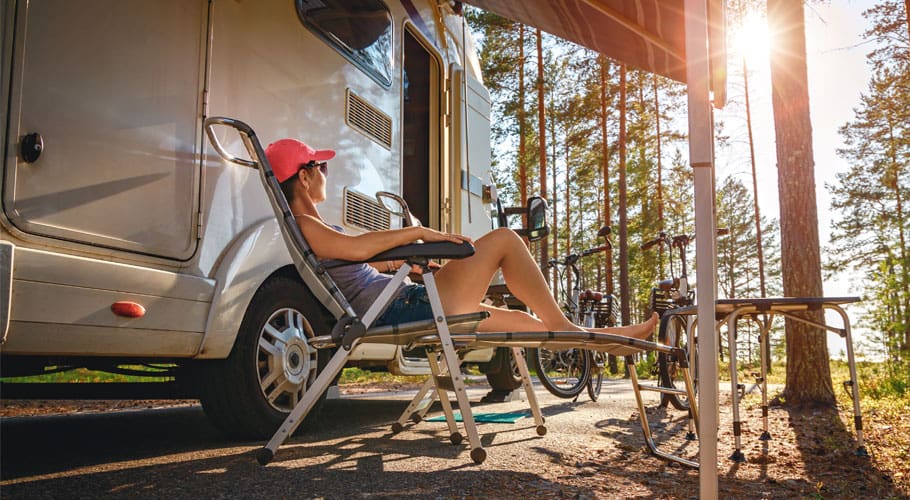
Road house
The chance to simultaneously explore new areas and linger has fuelled RV travel, which offers the freedom to move at your own pace—lodging included. To make the most of this getaway style, trip preparations start well before the wheels start turning. The memories? Guaranteed to last forever.
Since the pandemic started, recreational vehicle (RV) travel has taken the spotlight as the ultimate vacation. RV rentals and sales soared, according to the RV Industry Association. “[We’ve seen] a huge rise,” notes Paige Bouma, executive vice president of RV Trader, a website listing classified ads for new and preowned RVs, who notes that families found RV travel a way to hit the road and get away safely on their own during the pandemic. “It gives you a destination for something to do. You’re naturally social distancing, you don’t have to share a bathroom and you can make your own food.”
Add to that the beauty of nature and the thrill of exploring it, and it’s no wonder RVing has surged in popularity. “We really like moving around,” says Costco member Jennifer Stermer, who has been RVing with her husband for more than five years. “We can go wherever we want, and our house is right with us.”
If the idea of rolling down the road in a home on wheels appeals to you, there are important considerations. Planning and preparation, key to any trip, are especially crucial now, even as COVID-19 wanes. “Nowadays it’s even more important to do your homework and call ahead or visit websites to see what’s open,” Stermer says.
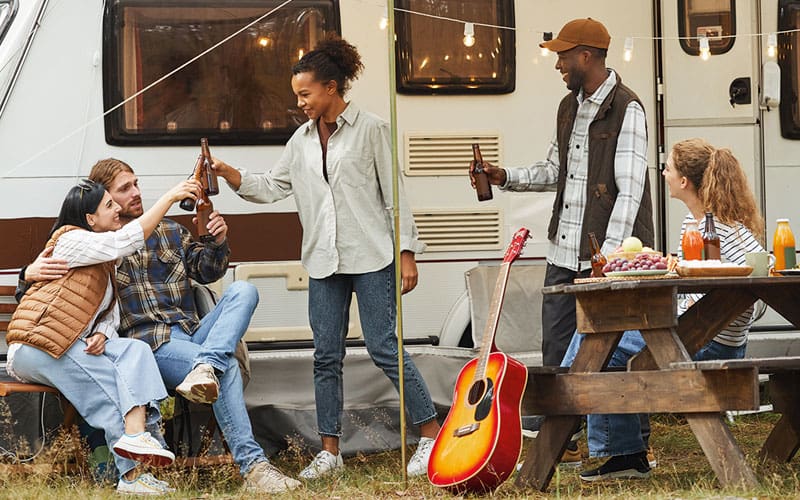
© SEVENTYFOUR / STOCK.ADOBE.COM
Behind-the-wheel preparations
“In most states, as long as your RV is under 26,000 pounds—and nearly all of them are—you won’t need a special license to drive it,” says Costco member Janine Pettit, founder of camping enthusiast website Girl Camper (girlcamper.com).
According to Pettit, the RV dealer where you buy or rent the vehicle should provide some initial driving guidance. Driving the vehicle around an empty parking lot, such as at a church or mall, may help you grow comfortable with the maneuvering techniques. You can get further instruction at places like RV Basic Training (rvbasictraining.com) or RV Driving School (rvschool.com), which offer driver training in different locations across the country.
Whether you’re staying close to home or crossing the country, you’ll want to make sure your RV is ready for travel, says Gary Lewis, CEO of RV Basic Training and a Costco member. Having a mechanic who is familiar with RVs look over the vehicle can be helpful. Lewis recommends checking the engine fluid levels, belts and hoses. Test the lights to ensure they all work, including turn signals and the license plate light. Keep anything on the roof tightly secured, along with compartment doors and everything inside the RV. If you’ll be towing another car during the trip, make sure the vehicles are equipped with proper hitch systems and that the RV can handle the extra load. Lewis had his mechanic install a base plate and electrical hookups to his car so it could be towed with all four wheels down.
In addition, check the tires for correct air pressure and any cuts or gashes, and make sure they’re rated for the load they’ll carry. Also check the tires’ manufacture date. “Tires older than five years can be a real hazard on the road and cause blowouts,” Lewis says.
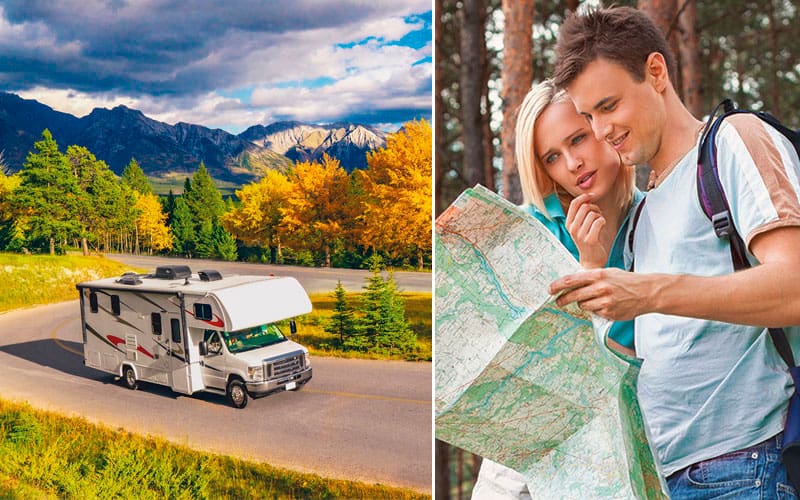
© ABAGAIL MARIE / STOCK.ADOBE.COM; ©MOODBOARD/STOCK.ADOBE.COM
Mapping the route
If you’re thinking about camping, you’ll find two main options: public campgrounds and private campgrounds. Public campgrounds can be found in places like state and national parks. They tend to be in rural settings and may be near hiking trails or a lake. Privately owned RV parks and campgrounds are often not as remote as public campgrounds.
A third, less common option, consists of finding a place on your own. Often referred to as “boondocking,” the idea is to camp off the grid, away from the services and amenities provided at public and private campgrounds.
Keep in mind, however, that this option includes extra legwork. “There’s a romantic notion of camping anywhere in the wild,” says Costco member J.P. Smith, co-creator of the Ultimate RV Checklist app and a full-time RVer for more than seven years. “It’s possible, but it takes preparation.”
For instance, you’ll typically rely on solar power or a generator in those places. “Know how long you can stay away from hookups,” Smith adds.
And you’ll need to check that the spot you’re considering is legal and available. While boondocking is often allowed in parking lots and public land areas, it’s best to check with a manager, public lands office or area official prior to setting up for the night.
Travel apps designed for RVs can simplify the trip logistics. RV Trip Wizard, for instance, helps you plan your route, find campgrounds and RV resorts, and determine how far you can go between gas stops. In addition, it will point out roads to avoid based on the size of your RV.
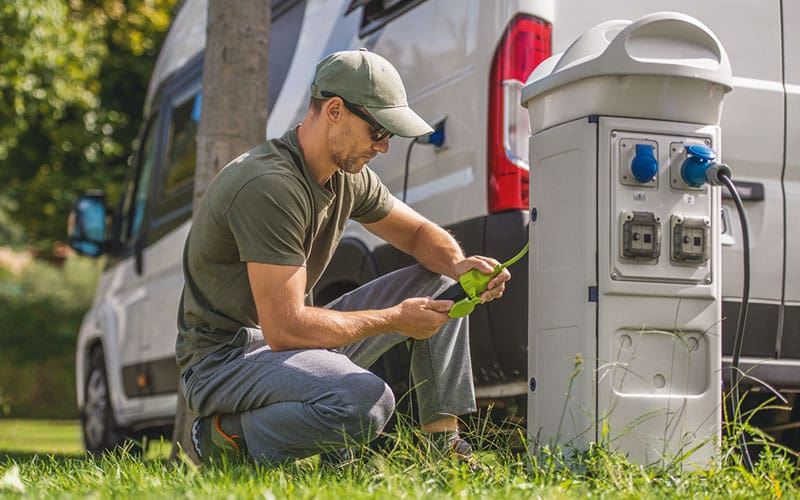
Packing the vehicle
As you would before any vehicle trip, pack a few tools to make a quick repair, as well as flashlights, road flares, etc., plus extra gear for cold weather. Of course, “it’s always a good idea to have a first-aid kit,” says Bryanna Royal, a full-time RVer and Costco member who has visited Costco warehouses around the country.
Before loading the RV, “create a packing list of things you will want,” says Pettit. Think through meals and snacks that you’ll want during travel days and while staying at your destination. Turn on the refrigerator a day or two before the trip so it’s cool and ready when you leave.
For shorter trips, “you can pack all the food you want so you aren’t spending time grocery shopping,” Royal says. For longer trips, you can restock as needed while on the road. Before stopping at Costco or a grocery store, check if the parking lot will accommodate your vehicle. “We always pull up the store on Google maps so we can take a look at the surrounding area and determine if we can park in the store lot or somewhere nearby with enough room to park,” adds Royal.
In addition to meals, think through other supplies, such as rugs, blankets, towels, dishes, pots, pans, cleaners and books or games to have on hand in case it rains.
“Don’t forget the long skewers for s’mores!” says Pettit.
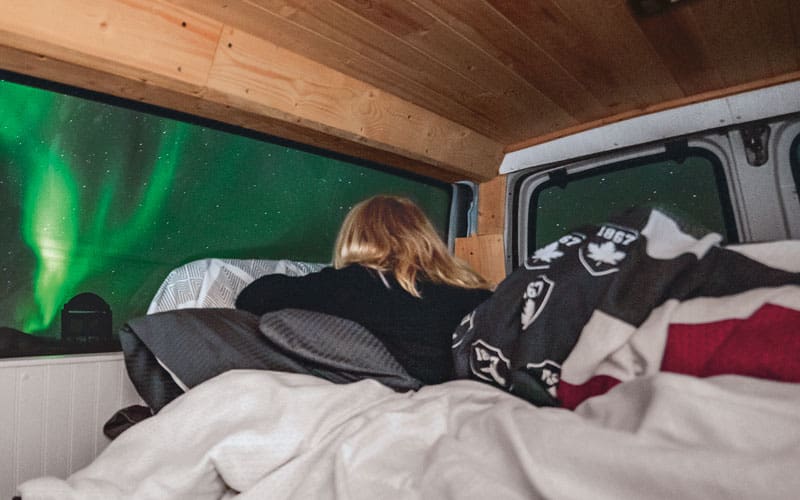
The rent vs. buy debate
If you’ve never taken a trip with an RV, Pettit recommends you rent first. “Try out different styles and sizes to find out what fits your family and lifestyle,” she says. You’ll have a chance to see if you like the floor plan and certain features without making any long-term commitments. You also won’t have to worry about maintenance or storage for the vehicle.
“Renting may limit the number of miles you can drive within a day,” Pettit notes. In terms of cost, expect to pay more than just the initial rental fee. “Think through all the different budget pieces, including the rental unit, gas, travel expenses and stops along the way,” Bouma says. Factor in the cost of insurance, and if you bring a pet, there may be an extra fee. Also consider how long you plan on going out. “If you’re planning to take a long trip, it may not be as cost-effective to rent a unit,” Bouma adds.
After renting a vehicle, it may be time to buy. While purchasing an RV comes with an initial investment, you’ll gain some freedom as well. “Owning an RV allows you to extend your trip and return when you are ready,” Pettit says.
You can also rent out the vehicle when you’re not using it. That’s the strategy Costco member Tory Daudelin and her family opted for. “In May 2020, we purchased our Taxa Mantis,” she explains. The family decided to rent it through Outdoorsy (outdoorsy.com) during the times they weren’t traveling in it. “When we were not using the camper it was rented out by families every single weekend it was available,” Daudelin says.
If you’re looking for adventure—or just some much needed R & R—an RV provides the chance to roam while still feeling at home. After some initial prep, you’ll be ready to hit the road, live out your wanderlust and get in tune with a different kind of travel.
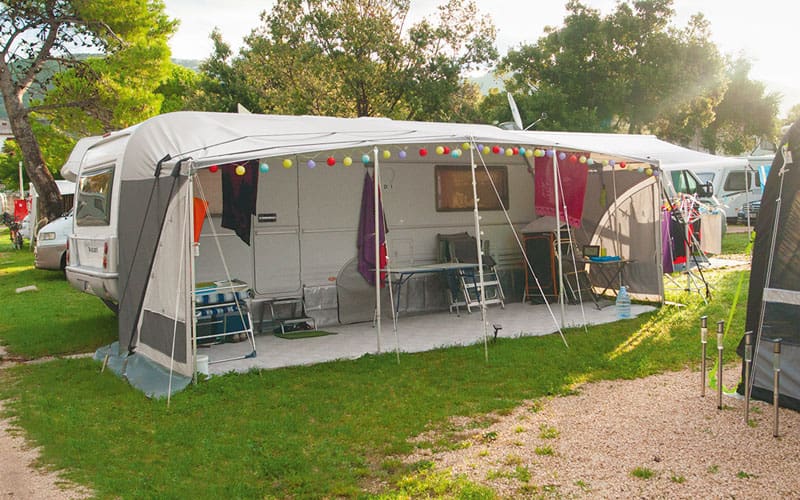
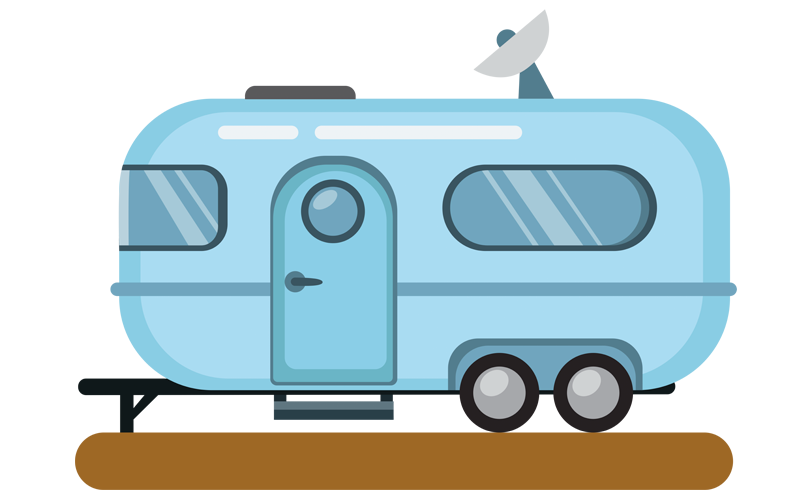
Costco Connection: Refuel, stock up on food, drink and supplies, and replace batteries, tires, windshield wipers and other automotive accessories for your RV at Costco warehouses. Costco.com offers generators and other RV-related accessories, including a Comfort Tech foam RV mattress. With the Costco Auto Program, you can choose from a wide variety of recreational vehicles to suit your lifestyle and save at a Costco Auto Program Approved Dealership.

